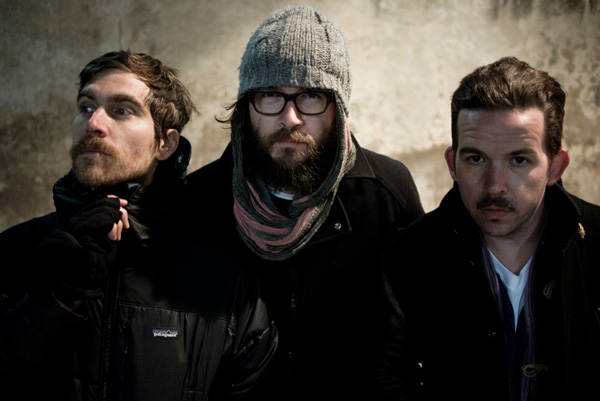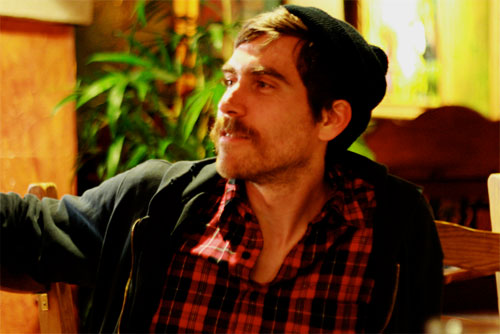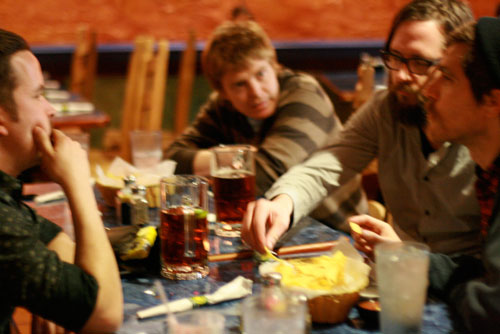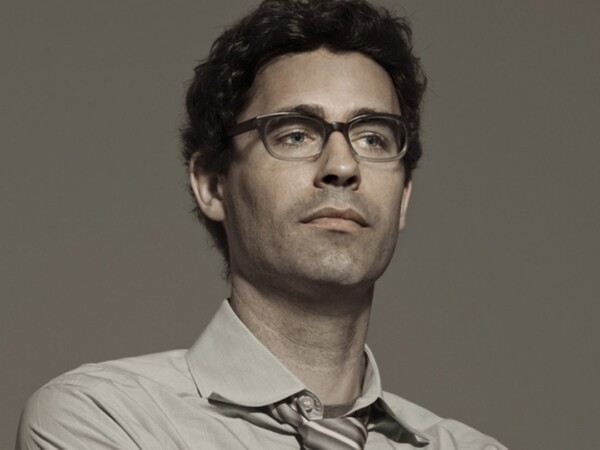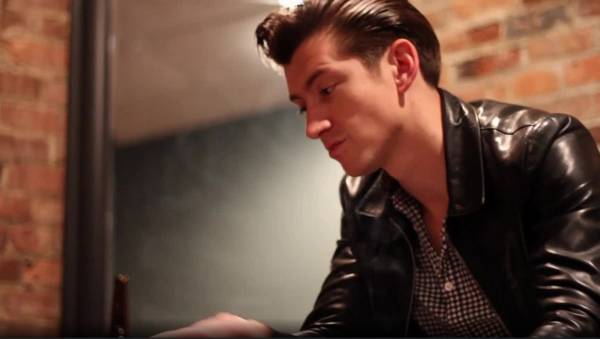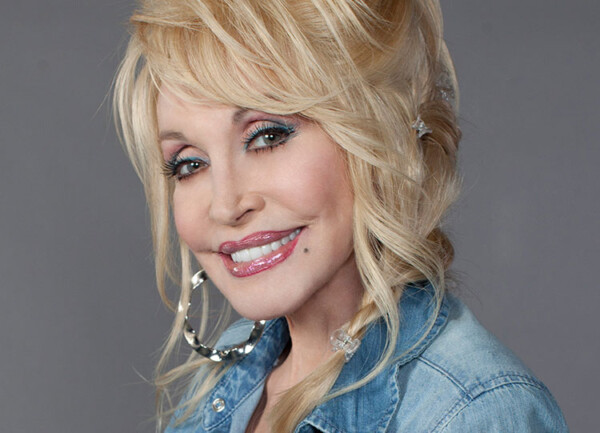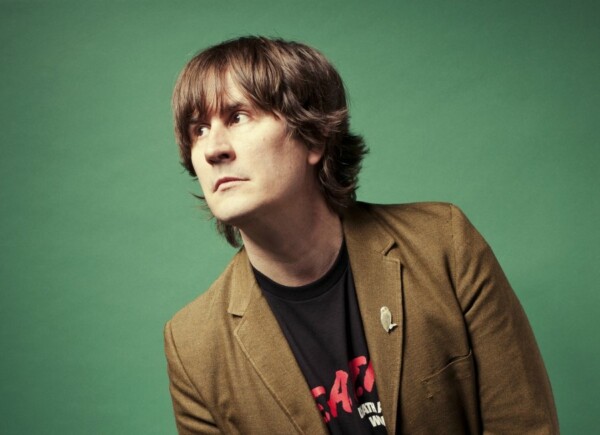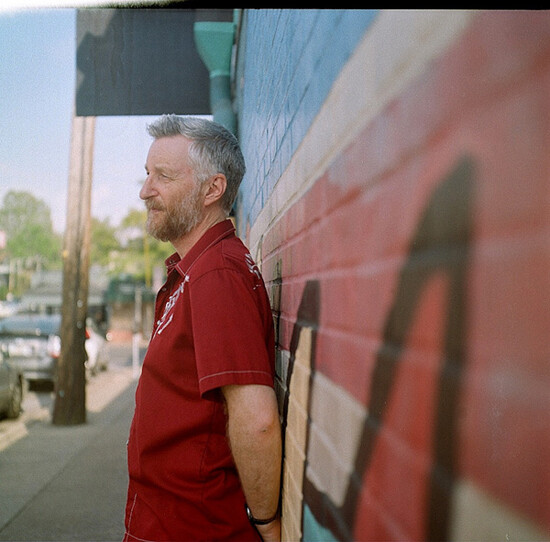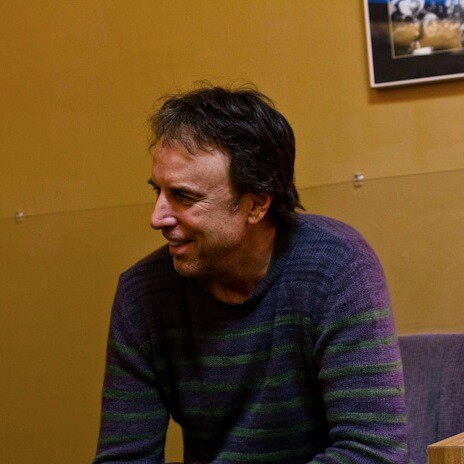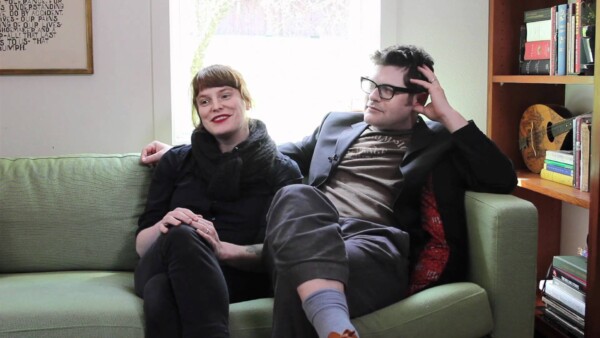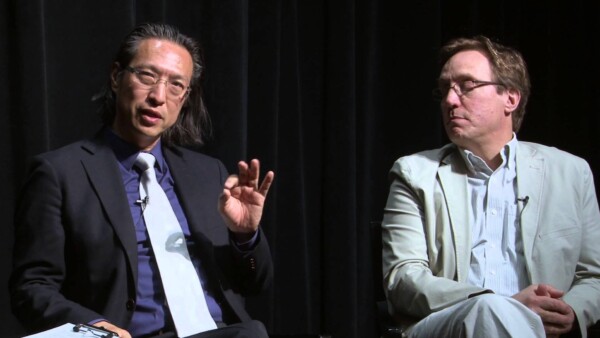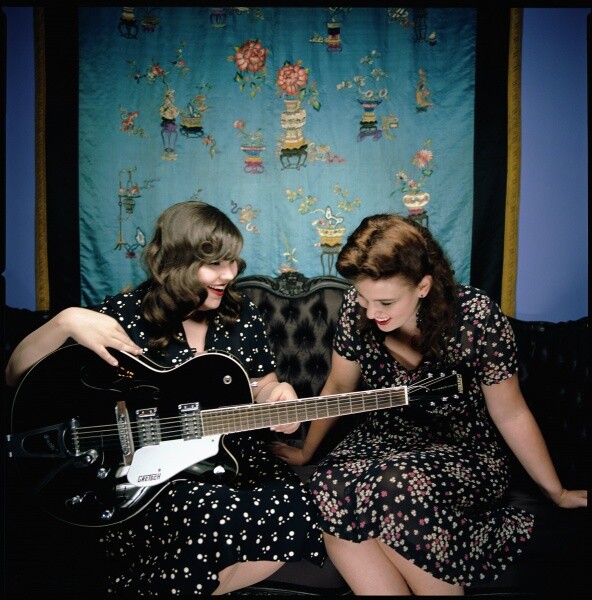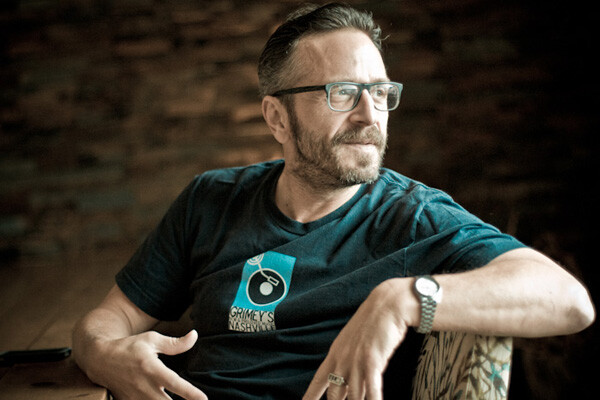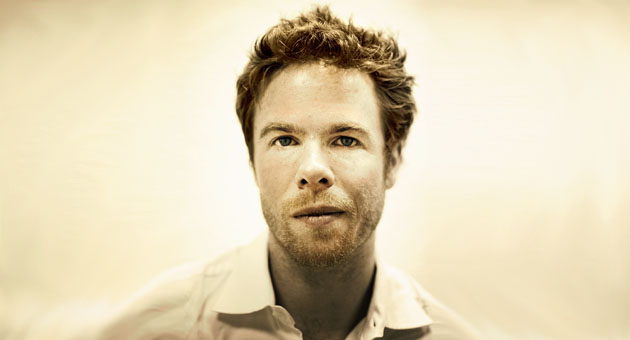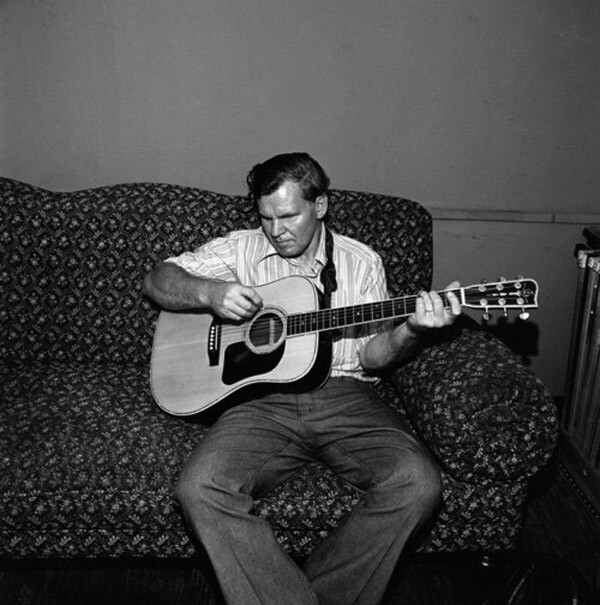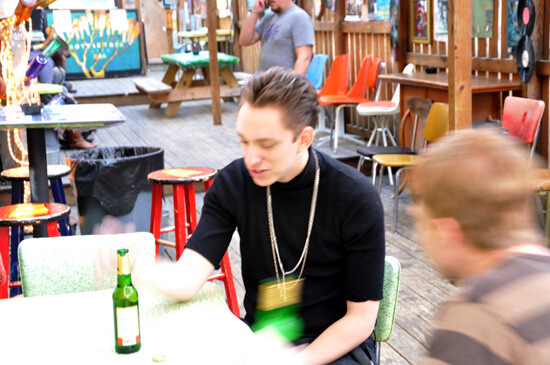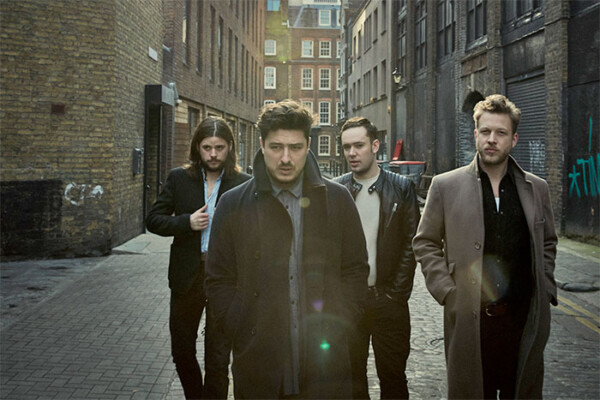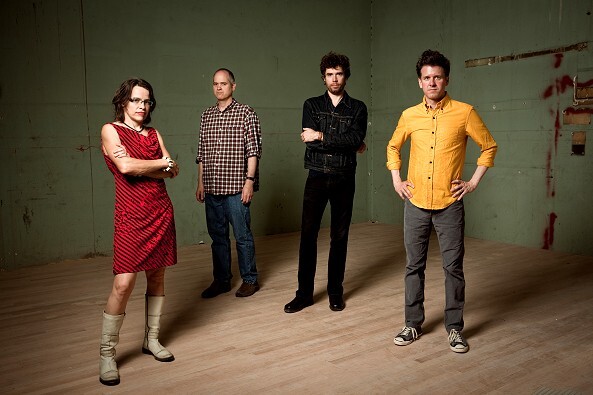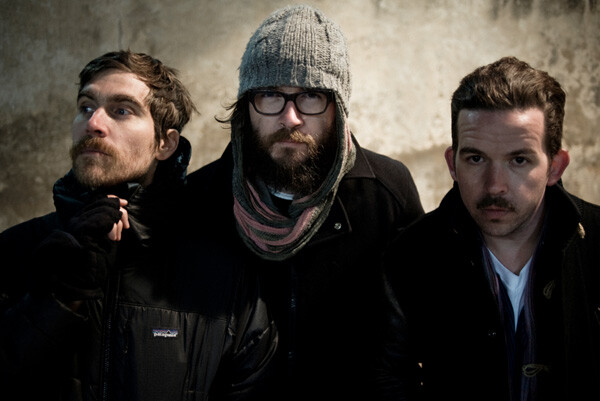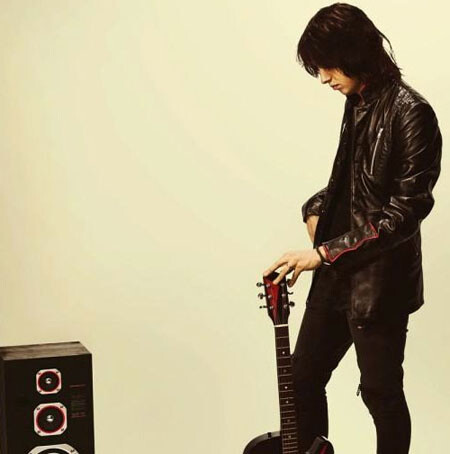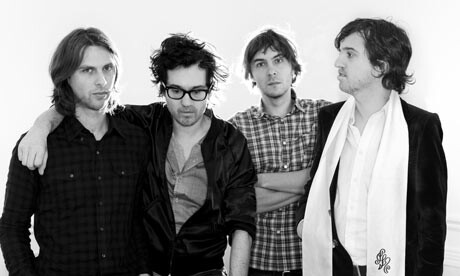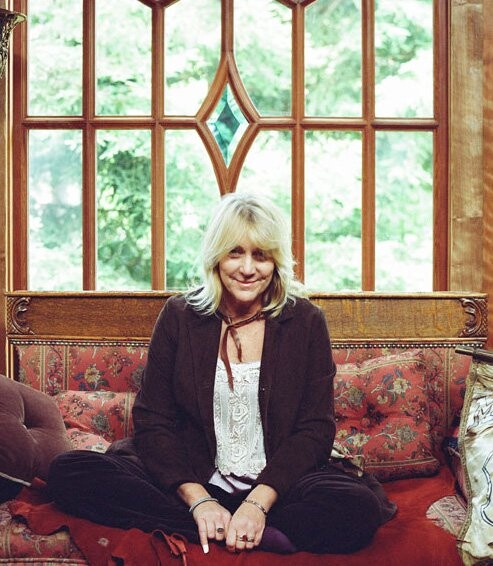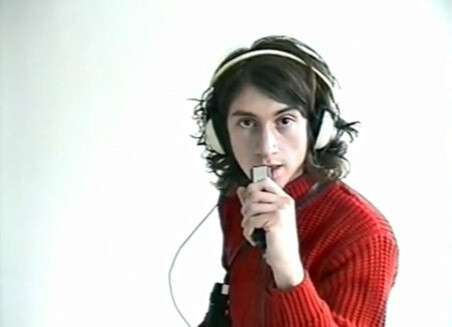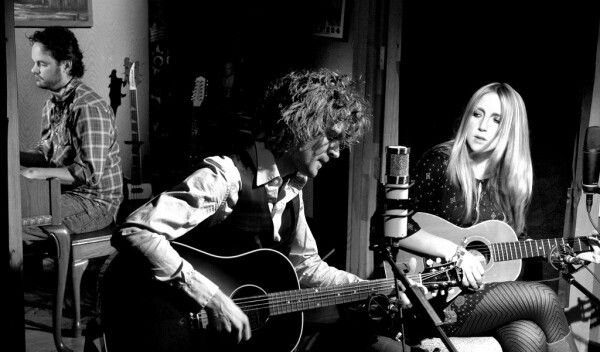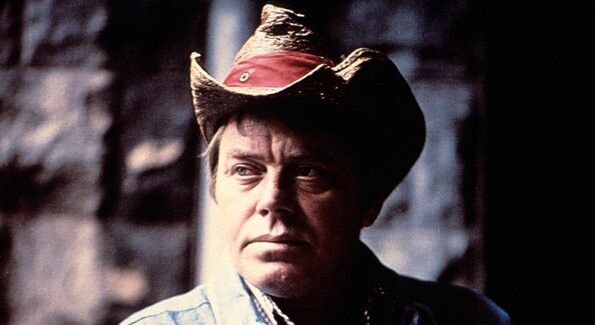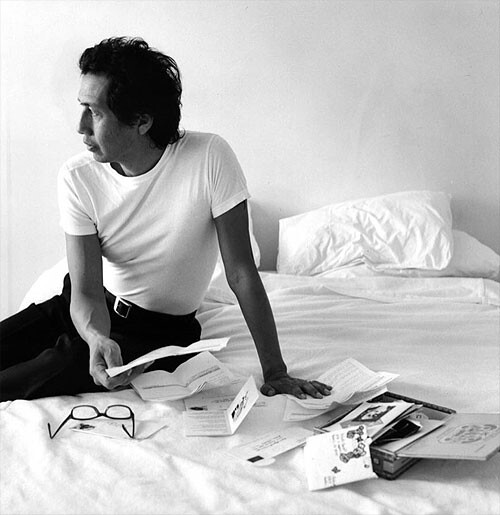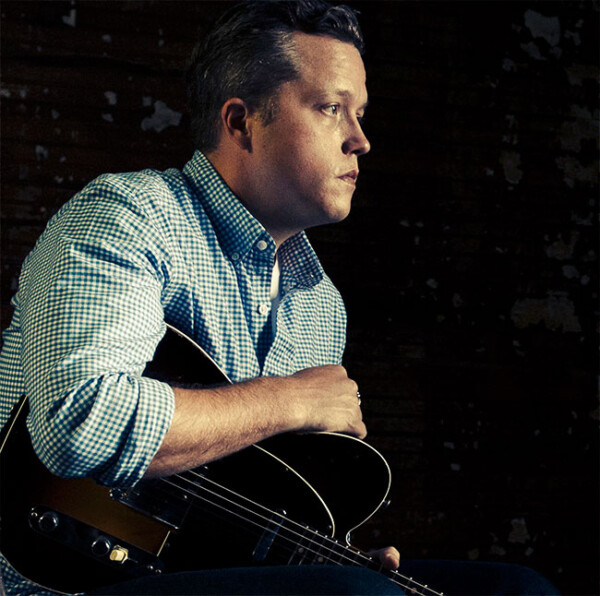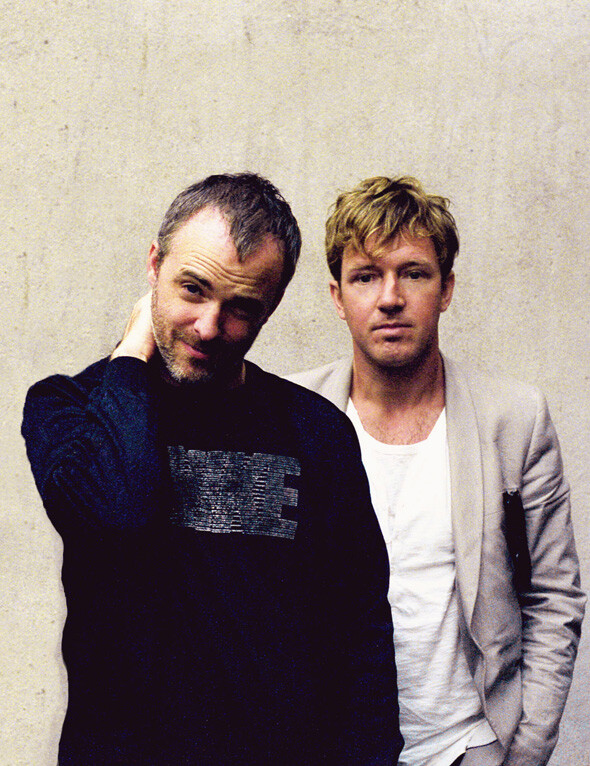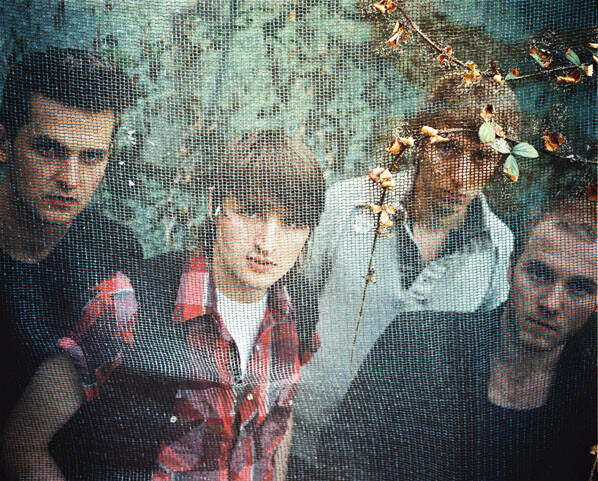(From left to right: Jon Philpot, Joe Stickney, and Adam Wills of Bear In Heaven)
Skip caught up with Bear in Heaven before their recent show at the End in Nashville. Their record Beast Rest Forth Mouth received numerous accolades on its release (Pitchfork, et al), and they have been touring the U.S. and Europe for the past several months supporting it. A deluxe edition of Beast Rest Forth Mouth will be out Sept. 14 on Hometapes.
What’s your favorite drink?
Adam: I like kombucha. I drink a lot of kombucha.
Jon:Â My favorite drink is ginger beer.
Adam (to Joe): I know what you like: soda water with lime. You always get those Schweppes things.
Joe: I do like the Schweppes. When I’m practicing I like the Schweppes, the lime Schweppes. I really like ‘em.
Adam: He does. You hear that Schweppes? Sponsorship.
Jon: But if you’re talking about alcohol I think, tequilla.
Adam: Yeah we all like tequila.
Joe: Yeah tequila’s pretty high up there on the list. I might put Belhaven, that Scottish ale. I’m huge a fan of that beer.
Adam: We drink a lot of Guinness.
The arrangements on your new record, Beast Rest Forth Mouth, seem to have a friendly acknowledgment of certain pop structures — though as often as not, there’s a total disregard of structure altogether. When you’re writing and recording, how conscious are you of these arrangement details? Are you writing whatever comes out, or are you consciously shaping things into place?
Jon: We are additive and subtractive. You know, we throw a lot of stuff into the pot and then pull it away. This go-around, we definitely tried to do a little more of a human structure to things as opposed to just wandering free-ness, that our previous record had. So you know, yes it was conscious, but, not intentional.
Joe: There’s only two verse / chorus songs on the record.
Adam: Yeah, I think the main pop element to the record is that all the songs fit within like a three- and-a-half minute range, which is a really new thing for us. Most songs don’t have like an AB-AB- and then like a C end. Most of them, like the first song, “Beast in Peace” just goes A-B-C-D, with no repeating anything. But all of our time signatures are pretty much 4/4. So everything is pretty straight up. One thing [journalists] keep on writing about are minor chords in the record. But it’s predominately all majors.
Joe: Any Major Dude Will Tell You. (laughs)
(photo credit Timshel Matheny)
It works to make the pop moments whenever they arrive much more pronounced. Like in “Lovesick Teenagers,†when the words in the verse stretch over to lead into the chorus: “…you’ll be/Dragging away from the high road …†I mean, it’s much closer to a Tin Pan Alley convention. How did you go about writing lyrics for these songs?
Jon: Lyrically, man, I spend a lot of time sitting in my room and trying to figure shit out. And [on this record] a lot of it honestly just kind of flowed, you know? There was a lot of, like, failure. We would actually play [songs] out and I would have lyrics and they just wouldn’t work. So yeah, we’d work on them. There’s always a process and pulling it away. I don’t know. I guess I’m still pretty stupid about was is the correct way to write a song. I still do a lot of things instinctively. But I love listening to music. It’s all sort of subconscious I think.
I’ve read about the band originally beginning as a kind of a bedroom project. What changed in the writing process for you all once you started to travel and play these songs live in clubs?
Jon: We got better. (laughs)
Adam: Yeah, we weren’t very good for a long time.
Jon: We got better. And we just got better at communicating, and trusting each other’s ideas. It’s a lot easier to write collectively. Because you know, everyone throws in a different thing. And its like well, you wouldn’t have known how to do that your self, or, you would never have done that, you know?
Joe: I think Jon’s a great editor, And Adam has a great ear for vetoing things that don’t sound good. So its good to be able to all just sit and play for hours in the practice space and then go back and Jon takes the stuff that he likes and starts working around with it. And then we go back and work from there on things.
Adam: I’m curious to know how that works in a lot of bands. I would imagine other bands might not have that level of comfort where you can bust someone’s bubble. For instance, if Joe’s playing a drum beat that he thinks is the shit. And then John says “You know what? What if instead you hit the floor tom or hit the rack or whatever. I imagine that going on in other bands, and it might be like “Fuck you, I’m writing my part. You play your [part].†There’s a lot of comfort in the fact that people can tell their opinion of a synth patch or my guitar tone or whatever. Everybody can say anything and nobody gets mad about it.
That’s great.
Jon: I only get frustrated if I’ve worked really hard on a synth patch though (laughs). “Hey Jon… can you take that stuttering part out?†“Fuck you man!†I’ve been working on that for 6 hours! I was trying to figure out how to do that with an LFO. Come on. (laughs)
(photo credit Timshel Matheny)
If you wake up in the morning and think, I’m going to work on something new today, how do you typically start? Do you go for a walk? Do you surround yourself with different tones or rhythms? Does somebody play chord progressions on a piano?
Jon: There’s a variety of ways. We do do a lot of like free playing. We do do a lot of jamming. I mean we’ve been recording all of our practices for like the last 5 years. We’ve got tons of stuff.
Joe: It seems like we actually tend to start from the rhythm up.
Adam: Yeah I think so to. For me, I can’t write like a guitar line on my own for the life of me unless there’s a beat. As soon as I hear a drum beat I can play a bass line, like something will come to my mind like immediately.
Joe: I feel like a lot of our stuff came out of the bass and the rhythm section, don’t you think?
Jon: Yeah.
Joe: And then stuff got laid on top and then it’ll get changed around but just like using that as the foundation.
Adam: Yeah, and thankfully we’ve got a good drummer to start from.
Jon: Yeah, though it really does sort of switch a little bit around though, because “Fake Out” was like a half-time version. The melody was like really half time when were playing with that.
Joe: That’s true.
(photo credit: Timshel Matheny)
Jon: When I’m walking around too, I’m always recording melodies on my phone. It’s embarrassing too when they pop up on my iTunes play list when I’m at home.
Adam: Oh like “Doo doo, la-la-la-laaa†(laughs) Yeah that’s a way to kill a dinner party.
Did you hear any records as kids that made you think about making your own music?
Jon: When I heard Prince, it changed my world, actually. My sister gave me 1999 and I was like ‘this fucking rules man.’ And my favorite 7-inch when I was a kid was “Superfreak.” That was great.
Joe: I think Talking Heads for me at a young age, like that song “And She Was” or whatever it is. I can remember hearing that and being like this is nice man.
Adam: My mom had a couple hundred Motown 45’s. By the time I was old enough to play them myself, they were all out of their sleeves. But I used to listen to those all the time.
Jon: That wasn’t so much the change of what music was for me though. Seriously when I saw that band AMM play, John Tilbury… they started in the late ’60s I guess. It’s improv essentially. And when I saw that, it changed my whole idea of what music could be. That somebody would sit down and listen to that and that was music.
Joe: There’s definitely a lot of different moments. The thing that hits you first at a really young age, and then the thing that like, changes that idea. In high school or college…
Adam: Completely. For me, with out a doubt, was buying a Captain Beefhart record in the dollar bin at Sam Goody when I was in 7th grade because the album cover looked hilarious.
Which album?
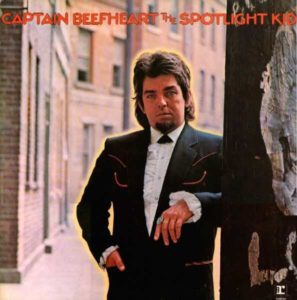 Adam: The Spotlight Kid. He’s in an alleyway with a bolo tie. And that’s like his straightest record. It’s almost a straight-up blues record. And by the time I was 15, I started buying Captain Beefheart records on my own which was like crazy for me, because I know a lot of people who starting to listening to really like amazing music young, because either their parents had amazing taste, or they had an older brother who was in college where traditionally you wind up finding out about all the music you listen to now. But for me just being from Marietta, Georgia I didn’t know anybody. My older brother had some pretty good taste. I always stole his Suicidal Tendency tapes and shit like that.
Adam: The Spotlight Kid. He’s in an alleyway with a bolo tie. And that’s like his straightest record. It’s almost a straight-up blues record. And by the time I was 15, I started buying Captain Beefheart records on my own which was like crazy for me, because I know a lot of people who starting to listening to really like amazing music young, because either their parents had amazing taste, or they had an older brother who was in college where traditionally you wind up finding out about all the music you listen to now. But for me just being from Marietta, Georgia I didn’t know anybody. My older brother had some pretty good taste. I always stole his Suicidal Tendency tapes and shit like that.
Jon: My friend Matt always turned me on to all kinds of good music. He made me hang out with the prog rock, stoner people. We’d sit their and watch animated movies and listen to Yes and… (laughs) … oh God, Gentle Giant…
I know a couple of you are from Marietta, but all of you live in New York now. Writing-wise, do you tend to work better in isolated settings, or surrounded by a lot of activity?
Jon: Honestly its been so long since I’ve been in a isolated setting, I have no idea.
Joe: Yeah I don’t know. I’ve never even tried to put that kind of effort that we put into our music now into any artistic field.
Adam: It would awesome to be just like rent a house in the woods and just be isolated.
Joe: Gang Gang (Dance) went out to Joshua Tree National Park to record their last album.
Adam: That works for me
Joe: Yea I think we need to go wherever they went
Jon: Lets go to Siberia man- how many people have recorded there record there? We can just get a few East Germans synths and just go for it.

